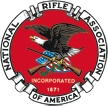|
|

BATFE Hearings Lead To Reform Bills Congressional investigations into ongoing BATFE abuses have led to two bills to change how the agency does business, and to fix other problems in federal firearms law. |
| by CHRIS COX, NRA-ILA Executive Director |
 t back-to-back hearings on March 28, the U.S. House Judiciary Committee’s Subcommittee on Crime, Terrorism and Homeland Security continued shining Congress’s light on enforcement practices at the Bureau of Alcohol, Tobacco, Firearms and Explosives (BATFE). The hearings continued the congressional scrutiny that has now led to two bills to change how the agency does business, and to fix other problems in federal firearms law. But the hearings also showed how far gun ban advocates will go to pursue their agenda—with New York City’s anti-gun activist mayor making outrageous claims about even the most modest reforms.
t back-to-back hearings on March 28, the U.S. House Judiciary Committee’s Subcommittee on Crime, Terrorism and Homeland Security continued shining Congress’s light on enforcement practices at the Bureau of Alcohol, Tobacco, Firearms and Explosives (BATFE). The hearings continued the congressional scrutiny that has now led to two bills to change how the agency does business, and to fix other problems in federal firearms law. But the hearings also showed how far gun ban advocates will go to pursue their agenda—with New York City’s anti-gun activist mayor making outrageous claims about even the most modest reforms.
As it had during hearings on BATFE’s gun show operations, the subcommittee started by hearing from people with first-hand experience dealing with BATFE.
At back-to-back hearings on March 28, the U.S. House Judiciary Committee’s Subcommittee on Crime, Terrorism and Homeland Security continued shining Congress’s light on enforcement practices at the Bureau of Alcohol, Tobacco, Firearms and Explosives (BATFE). The hearings continued the congressional scrutiny that has now led to two bills to change how the agency does business, and to fix other problems in federal firearms law. But the hearings also showed how far gun ban advocates will go to pursue their agenda--with New York City’s anti-gun activist mayor making outrageous claims about even the most modest reforms.
As it had during hearings on BATFE’s gun show operations, the subcommittee started by hearing from people with first-hand experience dealing with BATFE.
Virginia lawyer Richard Gardiner, who has represented many gun owners and dealers, focused on the way BATFE handles cases against federal firearms licensees (FFLs)--often seeking to revoke licensees for “trivial, immaterial violations” based on “undefined legal standards.” Gardiner described one case where a dealer lost his license even though BATFE itself agreed his records were 99.96% accurate. (The few errors posed no threat to public safety). In other cases, BATFE wrote dealers up for allowing abbreviations (such as “Y” for “yes” and “N” for “no”) on firearms transaction forms.
Next, Lt. Michael Lara—a 23-year veteran of the Tucson Police Department— recounted a personal horror story about BATFE’s enforcement priorities. After buying a gun as a gift for a law-abiding friend, Lt. Lara found himself facing federal felony charges as a “straw purchaser.” Lt. Lara lost his job, and didn’t get it back until after a three-month legal nightmare that cost him over $200,000 in legal fees, lost pay and other costs. BATFE never even questioned Lt. Lara before pursuing the charges—and at the end of the trial, the jury promptly acquitted him.
At the second hearing, the subcommittee focused on H.R. 5005, Rep. Lamar Smith’s (R-TX) bill to make various technical changes and corrections in federal firearms law. Anti-gun advocates have gone through the roof over one provision of H.R. 5005: a section that prohibits disclosure of firearms trace data outside of law enforcement investigations. That language simply makes permanent a policy that Congress has enacted through several amendments to BATFE appropriations bills. Congress’s aim, naturally, is to protect both the privacy of gun owners and the confidentiality of the law enforcement information in the database.
 |
Representative Lamar Smith (R-Texas) Introduced H.R. 5005, the "Firearms Corrections and Improvements Act," to make a number of technical changes to federal firearms laws. The bill would roll back unnecessary restrictions, correct errors and codify longstanding congressional policies in the arena of firearms law. H.R. 5005 would permanently ban taxes or "user fees" on background checks, ban the creation of centralized electronic index of dealers ' records, codify limits on disclosure of trace records and repeal obsolete language from the Brady Act's "interim" waiting period provisions that expired in 1998. |
Yet at this hearing, anti-gun New York City Mayor Michael Bloomberg (R) went over the top, hysterically denouncing H.R. 5005’s trace language and bizarrely claiming it would “facilitate the shooting deaths of thousands of innocent Americans every year.”
Bloomberg, of course, is no friend of the Second Amendment. His real goal—besides winning publicity Big Apple media—is to use this confidential law enforcement information in the city’s suit against the firearms industry. Attorney Gardiner punctured Bloomberg’s posturing, pointing out that “what the Mayor is saying about this bill simply is not true,” because the trace system is designed to help solve crimes, not to do statistical research.
At the hearing, subcommittee Chairman Howard Coble (R-NC) and ranking member Bobby Scott (D-VA) agreed on the need to focus BATFE’s efforts on enforcing current laws against serious criminals, while not pursuing petty violations or undermining civil liberties.
That agreement bore fruit a week later, as the two congressional veterans introduced H.R. 5092, the “Bureau of Alcohol, Tobacco, Firearms and Explosives (BATFE) Modernization and Reform Act of 2006.” This bill would be a critical first step toward bringing federal gun law enforcement back to its correct focus on dangerous violators—not on honest people who make mistakes.
All NRA members are urged to call their U.S. Representatives at (202) 225-3121, and urge them to cosponsor and support H.R. 5005 and H.R. 5092.
H.R. 5005, the “Firearms Corrections and Improvements Act,” by Rep. Lamar Smith (R-TX) would (among other changes):
- Permanently ban taxes or “user fees” on background checks by the federal instant check system—fees that Congress has prohibited in appropriations amendments every year since 1998.
- Permanently ban electronic registries of dealers’ records—a threat to gun owners’ privacy that Congress has also banned through appropriations riders for a decade.
- Limit disclosure of firearms trace records—which Congress has already limited through a series of appropriations riders over the past few years, out of concern for gun owners’ privacy and the confidentiality of law enforcement records.
- Eliminate a provision of federal law that requires juveniles to have written permission to use a handgun for purposes such as competitive shooting or safety training—even when the parent or guardian is present.
- Allow possession and transfer of machineguns by firearm and ammunition manufacturers for use in research and development (for instance, to ensure that ammunition works reliably), and by federal contractors who provide national security services.
H.R. 5092
Reps. Coble and Scott’s H.R. 5092 totally revises the system of penalties for licensed dealers, manufacturers and importers of firearms. Under today’s thoroughly abused system, BATFE can only give an FFL holder a warning, or totally revoke the license. This bill would allow fines or license suspensions for less serious violations, while allowing license revocation for the kind of serious violations that would block an investigation or put guns in the hands of criminals.
Among H.R. 5092’s other provisions, the bill:
- Allows penalties for intentional violations of the law, but not for simple paperwork mistakes. Congress thought it had fixed this problem when it passed the Firearms Owners’ Protection Act of 1986, but the government has argued in court that the 1986 changes were “without practical significance.”
- Provides a fair process for imposing penalties, by allowing FFLs to appeal BATFE penalties to a neutral administrative law judge. (Currently FFLs appeal BATFE decisions to another employee of BATFE itself.)
- Requires a Department of Justice review of BATFE gun show enforcement operations.
- Requires BATFE to establish clear investigative guidelines.
- Focuses BATFE’s efforts on violations of firearms, explosives, arson, alcohol and tobacco laws, rather than on broader gang, drug or terrorism investigations.













 More Like This From Around The NRA
More Like This From Around The NRA





